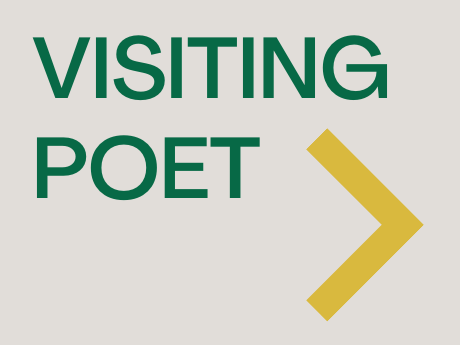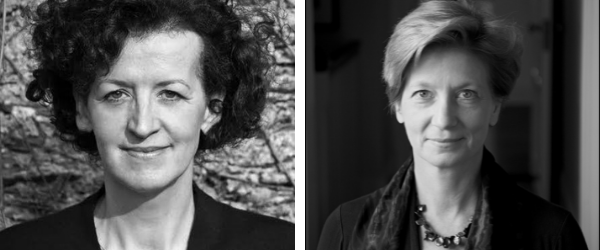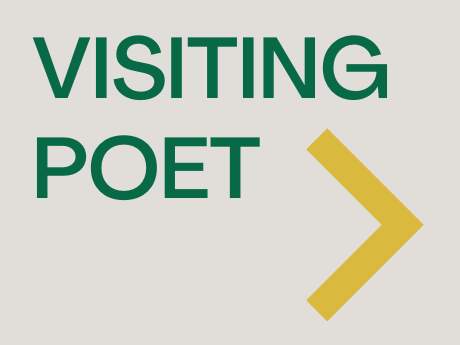Visiting Poet
Visiting Poet: Tess Lewis on Maja Haderlap

Four Poems
borderlands
their borderlines knotted a string
of snares and transgressions.
in the annals of division the boundary was inscribed
as victor. in wartime, the border strip
swung back and forth, villages
went astray, slid to
the periphery. their inhabitants
sealed their throats with crude locks,
stood watch over the silent crime scene
that i enter light-heartedly. often, followed by
their eyes, i took the armored path to a
neighboring land, to hear of earlier days,
when fences still lined the pastures
and a kindred echo bound
all the names. where a road once ran
its trace disappears. all is margin
and forgetting and transition.
carantania ( iv)
when the germinating language had fully budded,
embayed, serrated, winged, feathered,
and its grammar seemed etched into alphabet,
when, through stories recounted, enemies were banished to sea,
to the forest, to the cities and people
spoke of unity, realized they were a gem
in the ground plan of Europe, a branch on the bough
of their languages, their rival came as neighbor and seemed
more familiar in his dealings, friendlier
than their giants, the ajdi, who had always raged
on the mountain tops. he came to evaluate, to
count them, but found their number hardly worth
much. fewer, without protective power,
its speakers immediately hurled spear-sentences at
the majority. lanceolate, fired into the airy land,
scorched. lined up, bridled, the small nation’s
cavalry stood, in the full
dress of their embattled, forbidden language,
armed for a fractious battle.
only their misgivings kept their word.
house of love
the house that shelters me breathes imperceptibly.
has a timbered roof that billows like a sail,
has an outer layer that is not rigid. you hear
me living inside it, you ask what i’m doing,
grumble when i remain silent and weep. in the house
of love, everyone builds their own little cottage,
one for themselves and another for a third.
i will no longer give in to persuasion. my ribs
have congealed into a fan vault
that barricades me in. you can hardly
detect me, i’m so distant from you.
at night, my old desire makes a racket
deep in the keel. I float inwards, where love
couples with the foreign, to the cape
of hope, my throat taut.
translation
is there a zone of darkness between all languages,
a black river that swallows words
and stories and transforms them?
here sentences must disrobe,
begin to roam, learn to swim,
not lose the memory that nests in
their bodies, a secret nucleus.
will the columbine’s blue be a shade of violet
when it reaches the other side,
and the red bee balm become a pear, cinnamon-sweet?
will my tench be missing a fin
in the light of this new language? will it have to learn
to crawl or to walk upright?
does language know how to draw another toward it
or only how to turn the other one away? can each word,
then, risk the transit, believe itself
invulnerable, dipped in pitch and hard as steel?
Translated from the German by Tess Lewis.
Poems originally appeared in distant transit (Archipelago Books, 2022). Reprinted by permission of Archipelago Books.
Tess Lewis on Maja Haderlap
my small language dreams up
a land where it builds nests of words
to swarm out over the borders
that are not its own.
"dreaming language," Maja Haderlap
The Austrian writer Maja Haderlap has inhabited a linguistic no-man’s land since birth. Born into the Slovenian-speaking minority of Carinthia, Austria’s southern-most province, she was educated in Slovenian and German. In her twenties, she established herself as an accomplished poet with several volumes of poetry written in Slovenian. Then in 2011, at the age of fifty, she burst onto the German-language literary scene with her novel, Angel of Oblivion, a work based on the experiences of her family and her community, many of whom fought as Partisans against the Nazis during the Second World War and suffered resentment and suspicion from the German-speaking majority in the decades after. It is also the story of a young girl learning to navigate the treacherous terrain between two hostile communities and two extremely burdened languages: Slovenian, a language of heroic resistance and continued humiliations suffered and German, a way out of her stifling rural upbringing but also the language of the camps which her grandmother barely survived and many relatives didn’t. In elegant, evocative prose Angel of Oblivion deals with harrowing subjects – murder, torture, persecution and discrimination against an ethnic minority.
Haderlap’s decision to write the story of her family and her community’s experiences during the Second World War in German was a difficult, politically fraught one. However, she was determined to illuminate this almost forgotten chapter of European history and the European present and make it accessible to as wide a readership as possible. Angel of Oblivion portrays family dynamics poisoned by war and torture and interwoven in it is an urgent reflection on storytelling: the narrator hopes to rid herself of the emotional burden of her past and to tell stories on behalf of those who cannot. She can only exorcise her community’s inherited trauma by recounting it and in doing so help resurrect their collective memory.
In distant transit, her first collection of poetry written in German, Haderlap takes up several of her novel’s central themes—the fate of minority communities, the burden of history and the aftereffects of conflict, the ways languages can enforce borders as well as overcome them, how language shapes identity and the trials faced by intelligent, curious girls growing up in a conservative, patriarchal community—but she addresses these themes on a more intimate level. In these poems, the personal is political but not only. They also explore and celebrate the vicissitudes of love, closeness to the natural world, and a the lightly ironized enduring presence of Slovenian myths and legends among the Carinthian Slovenes.
History and the present are in a constant dance in these poems. Cole Swensen has noted that by viewing her world through “the focal length of time,” Haderlap casts “history as the heartbeat of the present, even as the present is the heartbeat of history.” Still, the poet’s affection for the moment, for lived experience, brings a sense of lightness, vitality and sensuousness to this collection.
These poems are not only a delight to read with their vivid, evocative imagery, the unexpected connections they make and their supple rhythms, but they also draw necessary attention to the political undertones and overtones of words and how ‘smaller’ languages and cultures can fall prey to dominant ones. Geopolitical powers have long drawn boundaries for their own interests, carving up ethnic groups, subsuming them in separate national entities and usually prompting the attrition of minority languages. Yet, as the poems in distant transit show, these languages can prove resilient, especially when poets give voice to their dreams.
Maja Haderlap’s poems shed light on the richness of human experience. Hers is a poetry of transitions, charting the move from one country or language to another, from adolescence to adulthood, from trust and intimacy to distance, from rootedness to estrangement, but also from estrangement to a sense of community and home. “i, too, have emerged repeatedly / as a translation of myself, / transferred and rewritten / i appear in a new transcription / although in a similar form."

Born into the Slovenian-speaking minority of Carinthia, Austria, Maja Haderlap writes poetry, libretti and fiction in Slovenian and in German. She was awarded the Ingeborg-Bachmann-Prize and the Rauriser Literaturpreis for her novel Engel des Vergessens, published in Tess Lewis’s translation as Angel of Oblivion (2016).. In 2019, she was awarded the Austrian Arts Prize for Literature and in 2021, the Christine Lavant Prize.
Tess Lewis is a writer and translator from French and German. Her translations include works by Walter Benjamin, Peter Handke, Jonas Lüscher, and Philippe Jaccottet. She was awarded the 2017 PEN Translation Prize for Maja Haderlap’s Angel of Oblivion and a Guggenheim Fellowship. In 2022, she was a Berlin Prize Fellow at the American Academy in Berlin.

